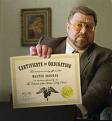A Look at Kent Hunter’s “The Future Is Now: How God Is Moving In The 21st Century Church
 I came across an ebook by Kent R. Hunter of Church Doctor Ministries entitled “The Future Is Now: How God Is Moving In The 21st Century Church.” I would like to quote from this source since it is so good, and then add a few of my analysis to it.
I came across an ebook by Kent R. Hunter of Church Doctor Ministries entitled “The Future Is Now: How God Is Moving In The 21st Century Church.” I would like to quote from this source since it is so good, and then add a few of my analysis to it.
From Chapter 15 – The Church Staff: A Dysfunctional Business Plan, Hunter says: “At the risk of sounding non- academic, the traditional approach for training church workers has outlived its sensibility. It is no longer possible for many to leave seminary with an $80,000 debt, take on a $40,000 annual salary, provide for a family of four, pay off bills, live near the poverty level, and function with a clear mind to accomplish adequate ministry.... It is no longer economically feasible for the system to survive.”
In the 21st Century, the Church has to look towards different avenues for Church leadership in economic hard times. We have been programmed to believe that the local church has to be lead and staffed professionally. I grew up in a church that still have the “free ministry”, as they call it. They have seven “elders” who do everything that most church pastors do while still holding down secular jobs. This duel leadership has served them well, causing them to “raise” leadership from with in their own body of local believers rather than looking outward to professionals coming in to supply leadership. Equipping their youth to be future leaders is a must if their system is to survive. (Most church Youth Groups are not focused in training leadership for the future for their local church when their church will look toward professionally bringing in pastors when needed.) Financially, with out budgeting for staffing needs, which is usually a large chunk out of most church’s budgets, they take offering for different needs as they arise. I witnessed a night over $10,000 was raised to complete a church in a third world country, and only a dozen people were in attendance when the offering was taken! They have freedom in their giving when not under constraints of “meeting the budget” heavy laden with staffing and building maintenance items.
 Most of what Hunter says in his ebook I have totally agreed with, but I do find a differencing of opinions when he said, “Equipping those called to ministry should be a seamless discipleship process in the context of the local church. It begins as a casual volunteer, then moves to a more involved volunteer, to a full-time volunteer, to the part-time paid volunteer, to the half-time paid volunteer, to the full-time paid staff person. It is at this point when many will take further biblical training. Most will obtain further education while they remain in their community and on the job. They will use long-distance learning or attend an occasional short-term, short-burst, boot-camp-type courses of no longer than two weeks away from family and church community.”
Most of what Hunter says in his ebook I have totally agreed with, but I do find a differencing of opinions when he said, “Equipping those called to ministry should be a seamless discipleship process in the context of the local church. It begins as a casual volunteer, then moves to a more involved volunteer, to a full-time volunteer, to the part-time paid volunteer, to the half-time paid volunteer, to the full-time paid staff person. It is at this point when many will take further biblical training. Most will obtain further education while they remain in their community and on the job. They will use long-distance learning or attend an occasional short-term, short-burst, boot-camp-type courses of no longer than two weeks away from family and church community.”
 There are two misnomers about Hunter’s way of thinking: 1) discipleship leads to professional development and 2) training must come from our traditional westernized Bible college, seminary, educational system.
There are two misnomers about Hunter’s way of thinking: 1) discipleship leads to professional development and 2) training must come from our traditional westernized Bible college, seminary, educational system.
Hunter is still thinking in terms of a discipleship training that leads to a professional “full-time paid staff person.” We have to ditch the volunteer/staff division (also known as laity/clergy rift) by responding to Ephesians 4’s call to “equip the SAINTS for the work of service,” not equip the staff or staff in training for the professional work of ministry. The “full-time ministry” as in full-time “professional” ministry myth must be addressed. The Church has been called to equip the “saints”, that are already employed, who are already the salt and light to the world in their secular job, to “serve” those in the secular world and those in the body of Christ. Paul was a tent maker as well a “preacher/pastor/parson/rector/minister”! He made tents and socially hung out in tents not in a church building. He did not get insolated like most of today’s clergy do. He had to stay in the world to impact the world for Jesus.
The second point: The academic, thinking, westernize approach apposes the Jewish, lamad, experience approach of teaching. If the Church is to be based on “head knowledge”, then degrees are important, but if it is to be based on “heart knowledge”, then the development of practical everyday “experiences”, the “doing the principles, not just knowing them” becomes of importance! Theology, intellectual Biblical interpretation, divides; practical every day living, experiencing, working out one’s faith individually and most importantly corporately in community unites.
 Again, I feel, another viable option for the 21st Century Church is the five fold. It’s goal is not to make believers, the saints, into professionals, or highly educated individuals, but to bring them into the “maturity” of being in the fullness of Jesus Christ, Christ-like as well as bring unity corporately. It has nothing to do with finances, nor the influence of finances upon the Church.
Again, I feel, another viable option for the 21st Century Church is the five fold. It’s goal is not to make believers, the saints, into professionals, or highly educated individuals, but to bring them into the “maturity” of being in the fullness of Jesus Christ, Christ-like as well as bring unity corporately. It has nothing to do with finances, nor the influence of finances upon the Church.
The questions is how the Church is to equip the saints, something the Holy Spirit is only beginning to teach the Church. I feel instead of developing from volunteer to half volunteer, half professional to full-time professional, the five fold has so much more to offer the “saints”. The evangelist “births” the saints into the kingdom, the pastoral shepherd nurtures, cares and develops them through daily life experiences, the teacher teaches from every day life lessons by challenging their faith based on the Word of God, while the prophet works on making the Logos Word taught by the teacher the Rhema Word, or living out one’s faith while learning to commune with God, and finally the apostle “sees over” what the Holy Spirit is doing in individual’s lives and corporately as a community of faith. What is produced: a more mature Christlike believer being developed into the image of Jesus Christ, and a unified community of faith working together to equip, care, develop, nurture, and release each other and new believers to “serve”.
The 21st Century Church needs to embrace a “saint” based ministry system rather than a professional ministry system, facing the challenges of how to equip, develop, care, maintain, nurture, and release the saints to “serve”. My Prayer: Holy Spirit come, be our teacher, show us, the Church, how to develop the five fold to mature the saints into the image of Jesus Christ while brining his Body into unity.